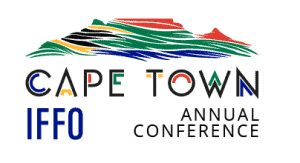Reduced catches in key regions are the driver for the cumulative reduction in global fishmeal and fish oil production over the first seven months of 2023.
The 76% reduction in Peru’s fishmeal production compared to the 2022 figures is the main factor. The figures are reported for marine ingredients organisation IFFO membership, which reports that the raw material used by the countries under consideration was about 52% lower in July 2023 compared with the same month in 2022.
This was due to fewer catches in all regions under consideration, with the exception of Iceland, the North Atlantic area, and African countries. Chile was the only country that registered a positive year-on-year change.
IFFI reports that Chinese demand for fishmeal remains subdued, most likely related to the imminent end of the main aquafarming season and to an expected lower-than-average demand of feed from the pork sector. Stocks of imported fishmeal are currently reported as being not far from the previous five-year average, as the Chinese traders and end-users have so far managed to navigate through the drop in the Peruvian supply of fishmeal and fish oil by increasing their imports from other origins.

China’s final fishing ban was lifted on in mid-September in specific areas of the Yellow Sea and East China Sea. Operations in the open fishing grounds have so far provided below par landings, comparable to those reported during the same period last year.
IFFO will be holding its 61st Annual Conference 23rd-25th October in Cape Town. Open to IFFO Members and non-IFFO Members interested in the marine ingredients value chain, the conference will discuss the foremost issues shaping the future of nutrition, and the role marine ingredients will play.
The programme features presentations and panel discussions involving Professor Manuel Barange, Director of the FAO’s Fisheries and Aquaculture division, and David Pilling, African editor at Financial Times. There will be interactive discussions on specialist topics looking at how ESG (Environmental, Social, Governance) rating is impacting sourcing policies, how precision nutrition as well as feed footprint measurement and traceability requirements are shaping the feed sector and the role marine ingredients have to contribute to food security globally.
The Conference’s Market Forums will provide an unparalleled global outlook from across our industry, covering both the supply and demand of marine ingredients.
‘We chose Cape Town for this year’s edition, after Lima in 2022 and Shanghai in 2019, because it fits with the marine ingredients industry’s involvement in global food security discussions and reflects the global presence of the industry, on all continents,’ said IFFO director general Petter Martin Johannessen.









